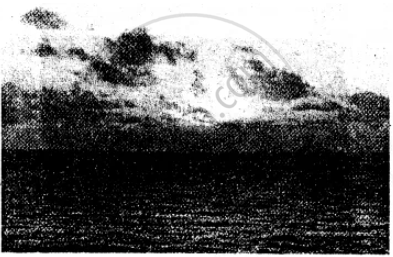Advertisements
Online Mock Tests
Chapters
2: Elements of a Map
3: Major Landforms of the Earth
▶ 4: Major Water Bodies
5: Types of Agriculture
6: Major Crops
7: Minerals and Ores Exercises
8: North America: Location, Area, Political and Physical Features
9: North America: Climate, Natural Vegetation, Wildlife; Mineral and Power Resources
10: South America: Location, Area, Political and Physical Features
11: South America: Climate, Natural Vegetation, Wildlife; Mineral and Power Resources
![Oxford University Press solutions for Voyage Geography [English] Class 6 chapter 4 - Major Water Bodies Oxford University Press solutions for Voyage Geography [English] Class 6 chapter 4 - Major Water Bodies - Shaalaa.com](/images/voyage-geography-english-class-6_6:095a8c00096845b1b8d5a92e89bd5fd3.jpg)
Advertisements
Solutions for Chapter 4: Major Water Bodies
Below listed, you can find solutions for Chapter 4 of CISCE Oxford University Press for Voyage Geography [English] Class 6.
Oxford University Press solutions for Voyage Geography [English] Class 6 4 Major Water Bodies Exercise
Match the columns
| Column A | Column B |
| 1. the Ring of Fire | i. water pollution |
| 2. the Atlantic Ocean | ii. inland sea |
| 3. the Caspian sea | iii. mountain ranges around the Pacific Ocean |
| 4. oil spill | iv. an S-shaped ocean |
With the help of your atlas identify and mark the following in an outline map of the world.
The largest ocean in the world
With the help of your atlas identify and mark the following in an outline map of the world.
The northernmost ocean
With the help of your atlas identify and mark the following in an outline map of the world.
An inland sea in Eurasia
With the help of your atlas identify and mark the following in an outline map of the world.
Two rivers in Europe
Answer the following question in brief
Name the major water bodies on earth.
Answer the following question in brief
What is the Ring of Fire?
Answer the following question in brief
What is the difference between a gulf and a bay?
Answer the following question in brief
What do you understand by strait ? Give an example.
Answer the following question in brief
Mention the five Great Lakes of the USA.
Answer the following question in brief
Name the different parts of a river.
Answer the following question in brief
What is surface run-off?
Answer the following question in one or two paragraphs
Why are oceans important?
Answer the following question in one or two paragraphs
Describe the course of a river.
Answer the following question in one or two paragraphs
Mention any five important rivers of the world,
Answer the following question in one or two paragraphs
Briefly describe the importance of rivers.
Answer the following question in one or two paragraphs
What are the major causes of water pollution?
Answer the following question in one or two paragraphs
What is an oil spill? Why is it harmful to the environment?
Picture study:

Look at the picture of an ocean given here and answer the questions.
1. Describe the characteristics of the largest ocean in the world.
2. What are the differences between an ocean and a sea?
On a blank outline map of the world, mark and label the following.
Gulf of Alaska, Caribbean Sea, Palk Strait, Bay of Bengal, Bering Sea, Persian Gulf, Bass Strait, Iceland, Aral Sea
Oxford University Press solutions for Voyage Geography [English] Class 6 4 Major Water Bodies Let's do something
Refer to your atlas and identify some of the important seas in each ocean. Tabulate your observations as shown here and then mark and label them on a blank outline map of the world.
| Names of Ocean | Names of Sea |
| Pacific | __________ |
| Atlantic | __________ |
| Indian | __________ |
| Arctic | __________ |
Solutions for 4: Major Water Bodies
![Oxford University Press solutions for Voyage Geography [English] Class 6 chapter 4 - Major Water Bodies Oxford University Press solutions for Voyage Geography [English] Class 6 chapter 4 - Major Water Bodies - Shaalaa.com](/images/voyage-geography-english-class-6_6:095a8c00096845b1b8d5a92e89bd5fd3.jpg)
Oxford University Press solutions for Voyage Geography [English] Class 6 chapter 4 - Major Water Bodies
Shaalaa.com has the CISCE Mathematics Voyage Geography [English] Class 6 CISCE solutions in a manner that help students grasp basic concepts better and faster. The detailed, step-by-step solutions will help you understand the concepts better and clarify any confusion. Oxford University Press solutions for Mathematics Voyage Geography [English] Class 6 CISCE 4 (Major Water Bodies) include all questions with answers and detailed explanations. This will clear students' doubts about questions and improve their application skills while preparing for board exams.
Further, we at Shaalaa.com provide such solutions so students can prepare for written exams. Oxford University Press textbook solutions can be a core help for self-study and provide excellent self-help guidance for students.
Concepts covered in Voyage Geography [English] Class 6 chapter 4 Major Water Bodies are Oceans, Sea, Lakes, Rivers, Locating Oceans, Seas, Lakes and Rivers on the World Map, Water Pollution and Its Causes.
Using Oxford University Press Voyage Geography [English] Class 6 solutions Major Water Bodies exercise by students is an easy way to prepare for the exams, as they involve solutions arranged chapter-wise and also page-wise. The questions involved in Oxford University Press Solutions are essential questions that can be asked in the final exam. Maximum CISCE Voyage Geography [English] Class 6 students prefer Oxford University Press Textbook Solutions to score more in exams.
Get the free view of Chapter 4, Major Water Bodies Voyage Geography [English] Class 6 additional questions for Mathematics Voyage Geography [English] Class 6 CISCE, and you can use Shaalaa.com to keep it handy for your exam preparation.
